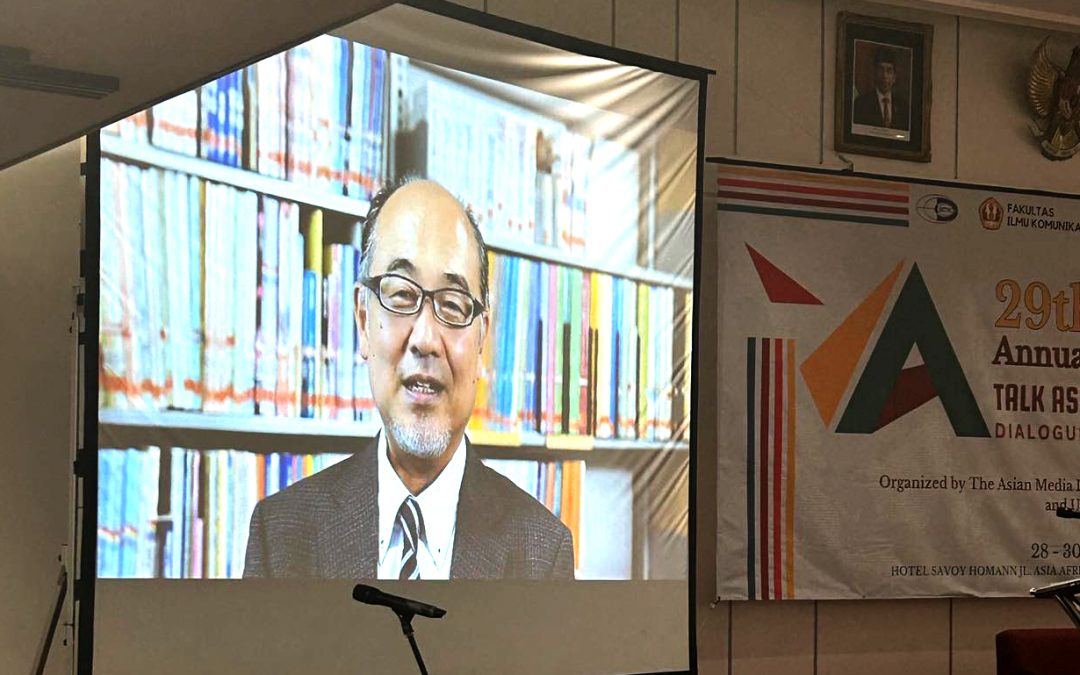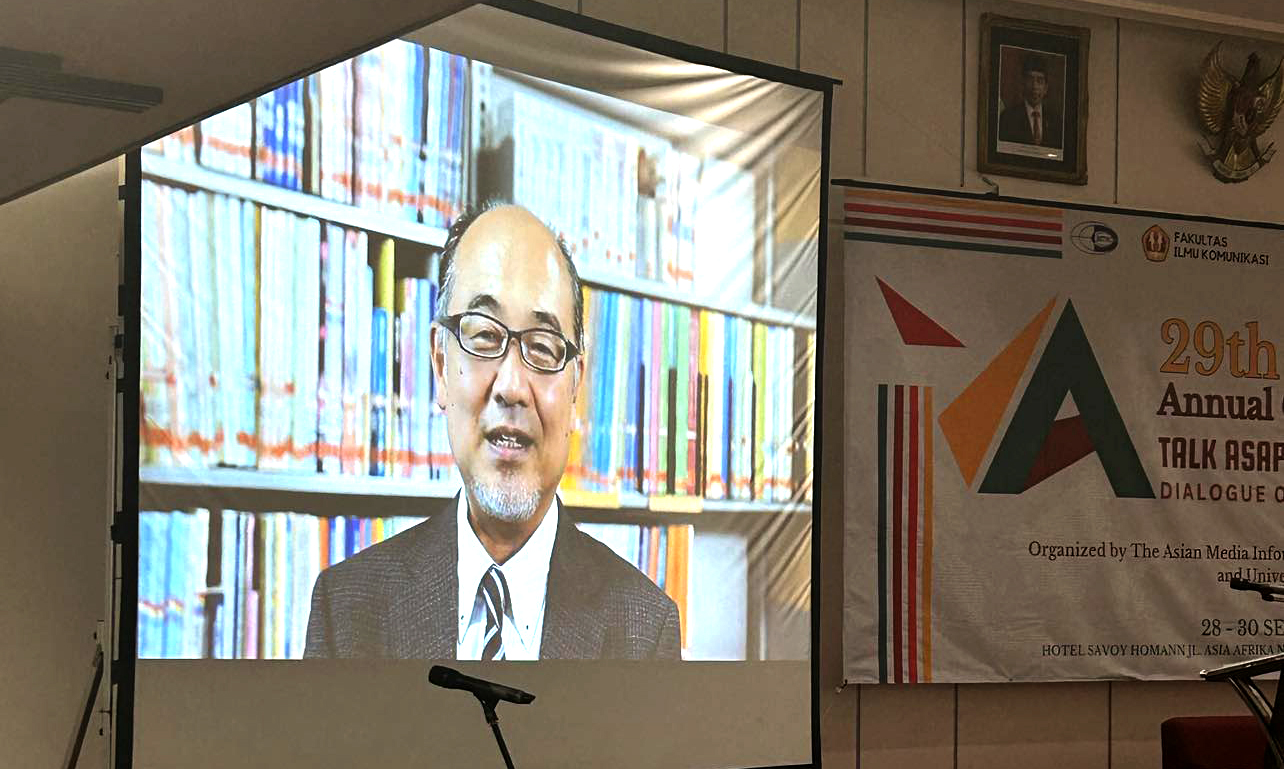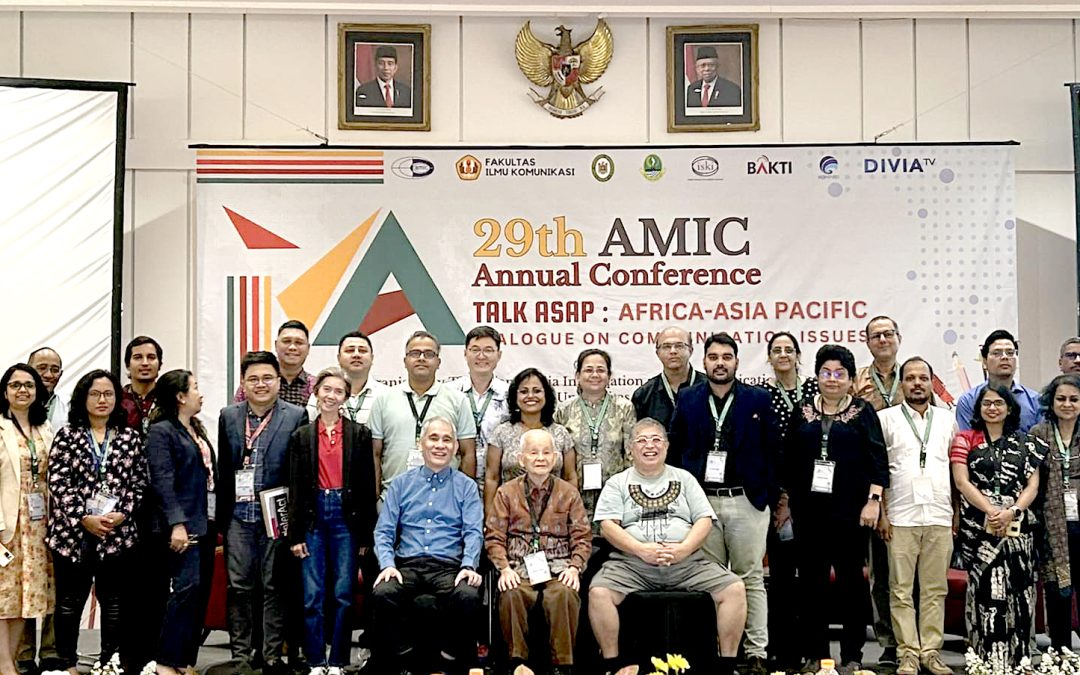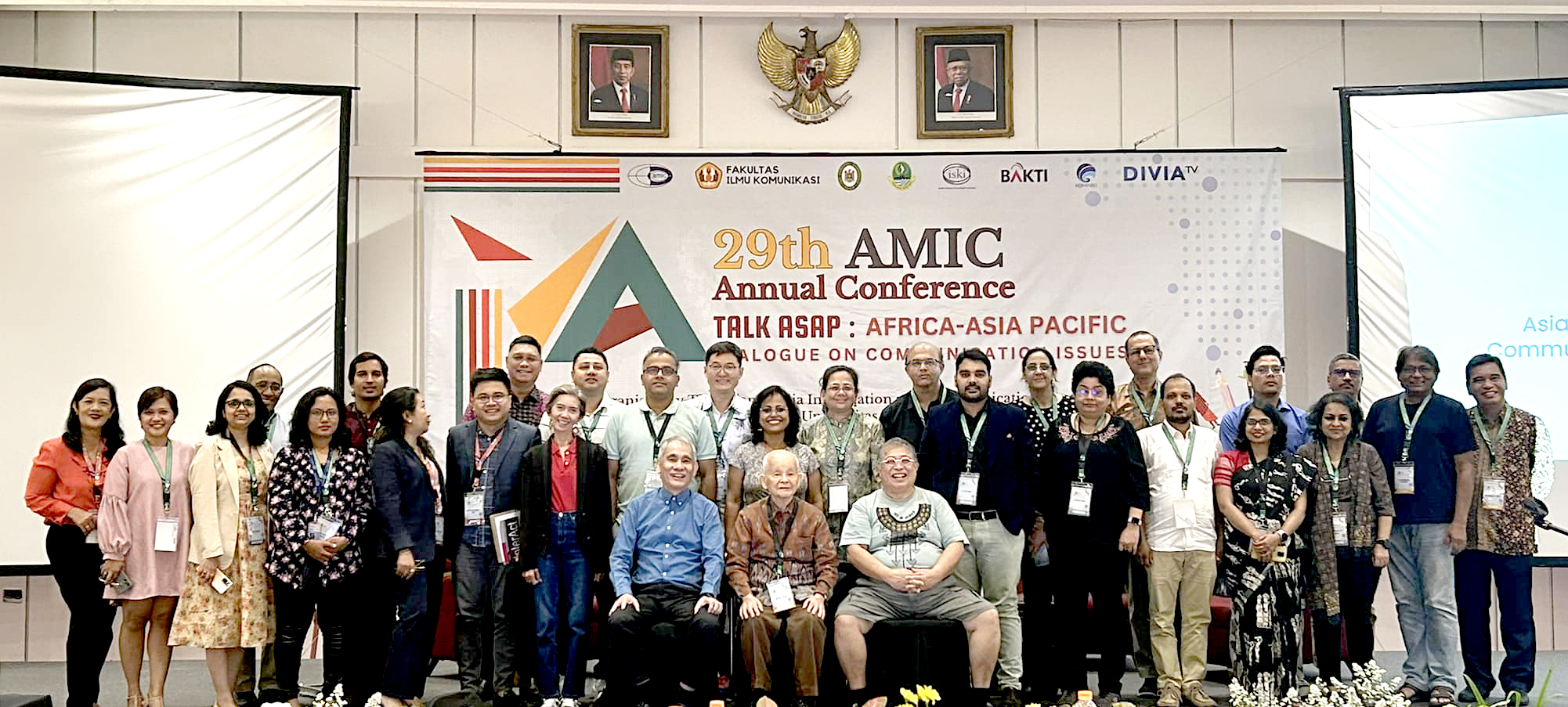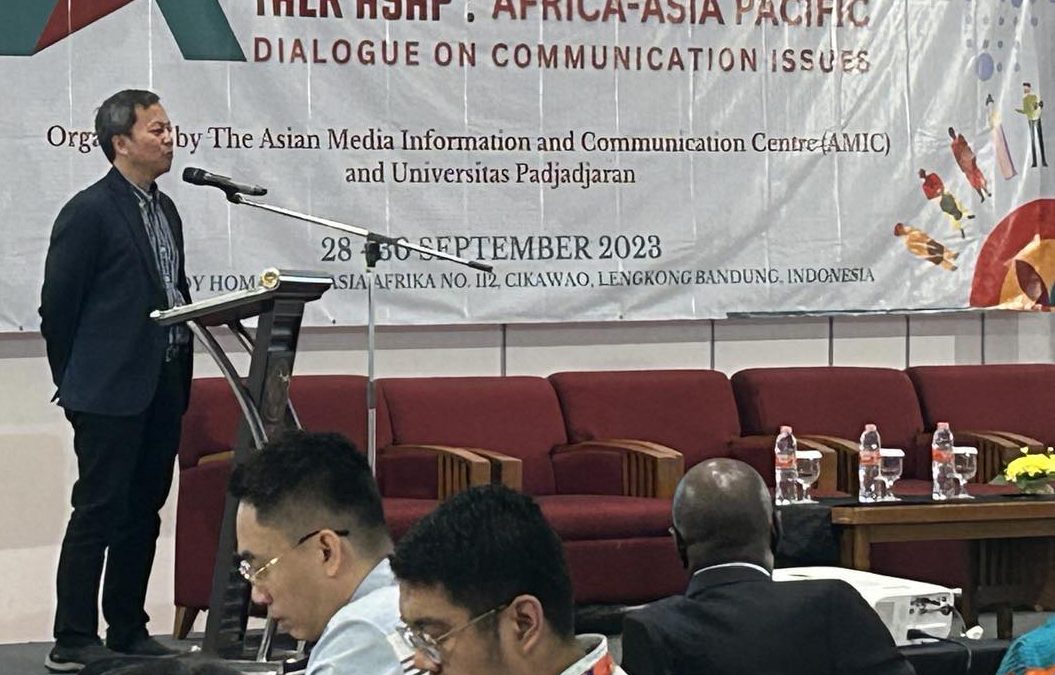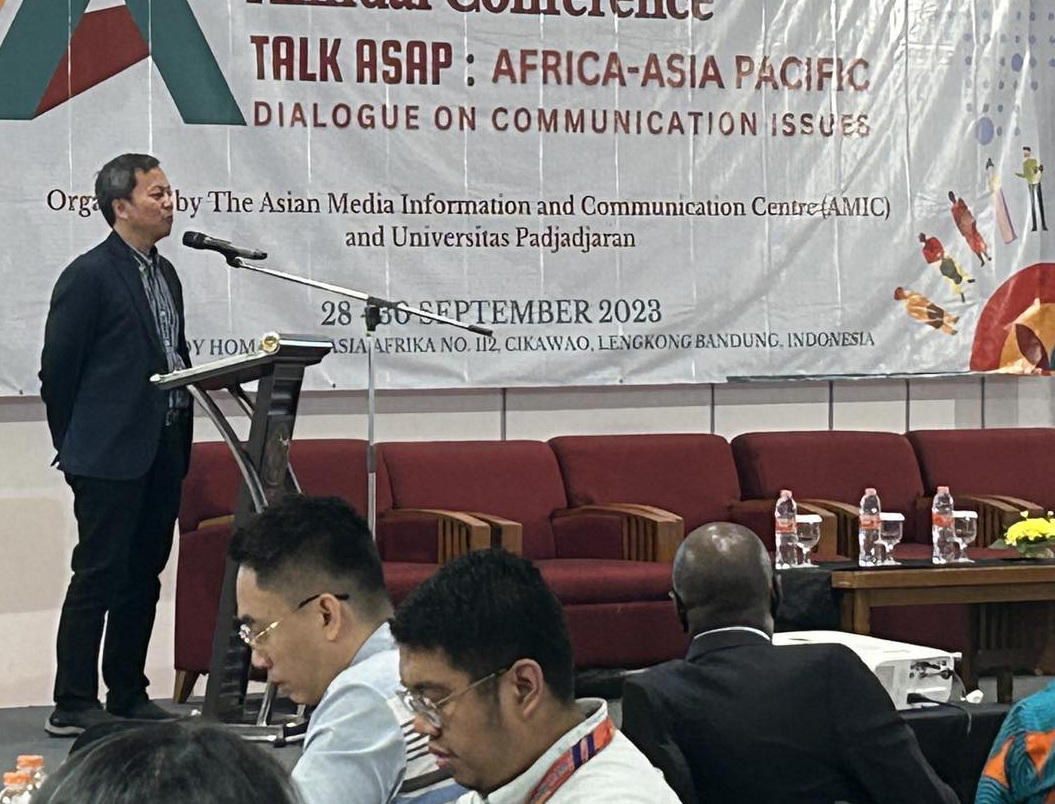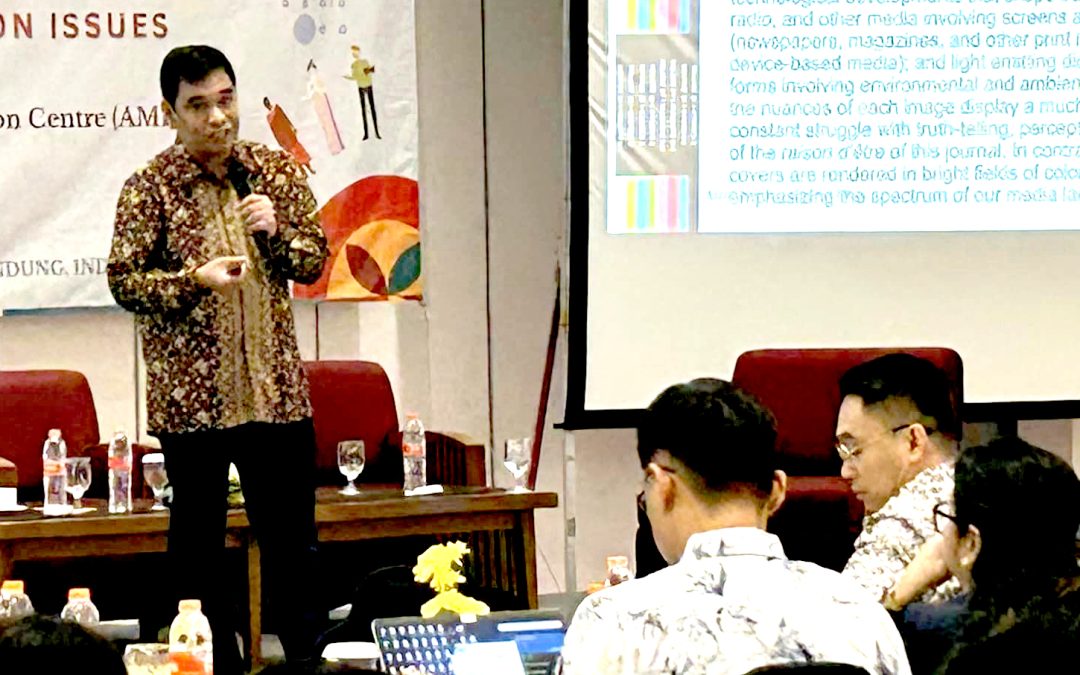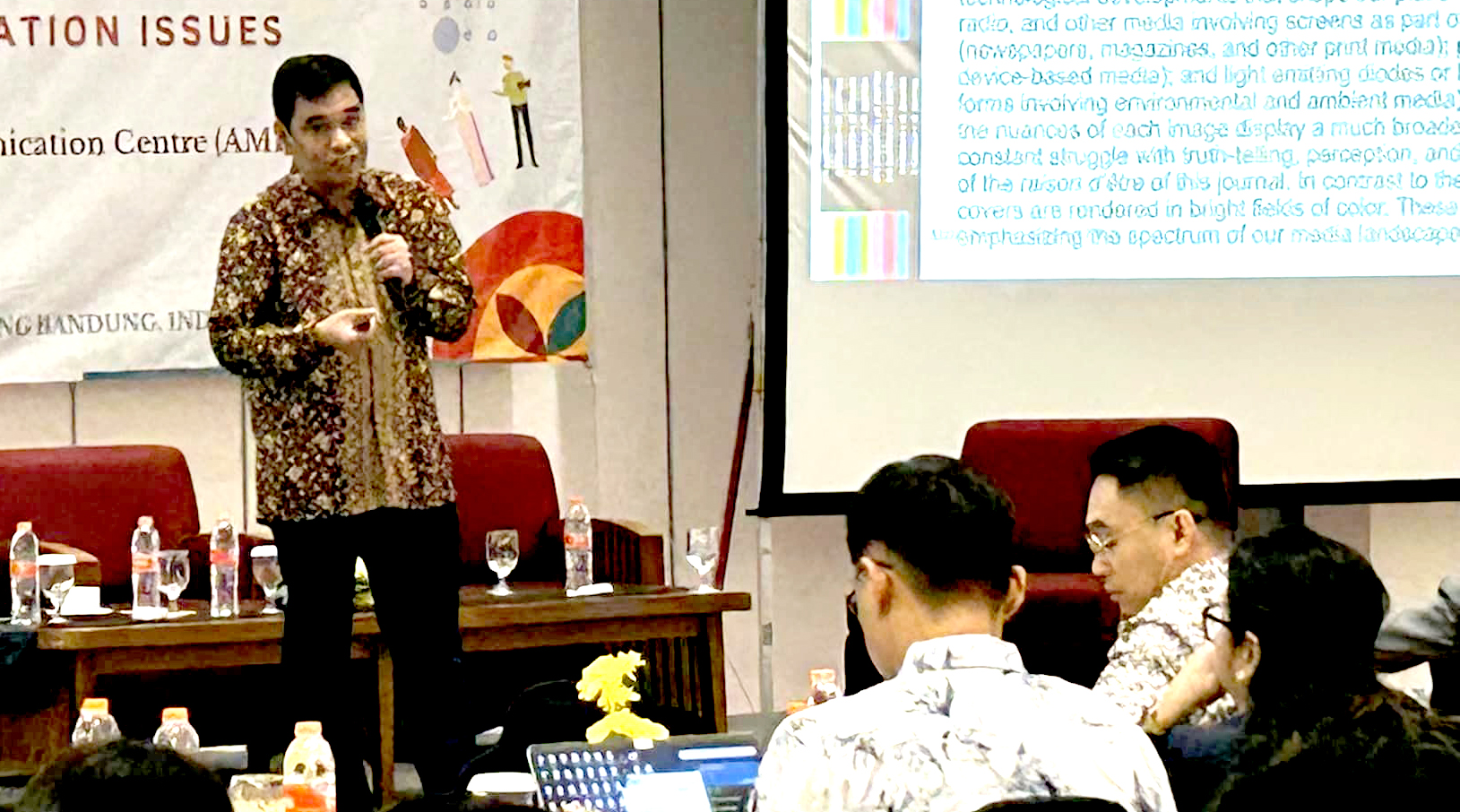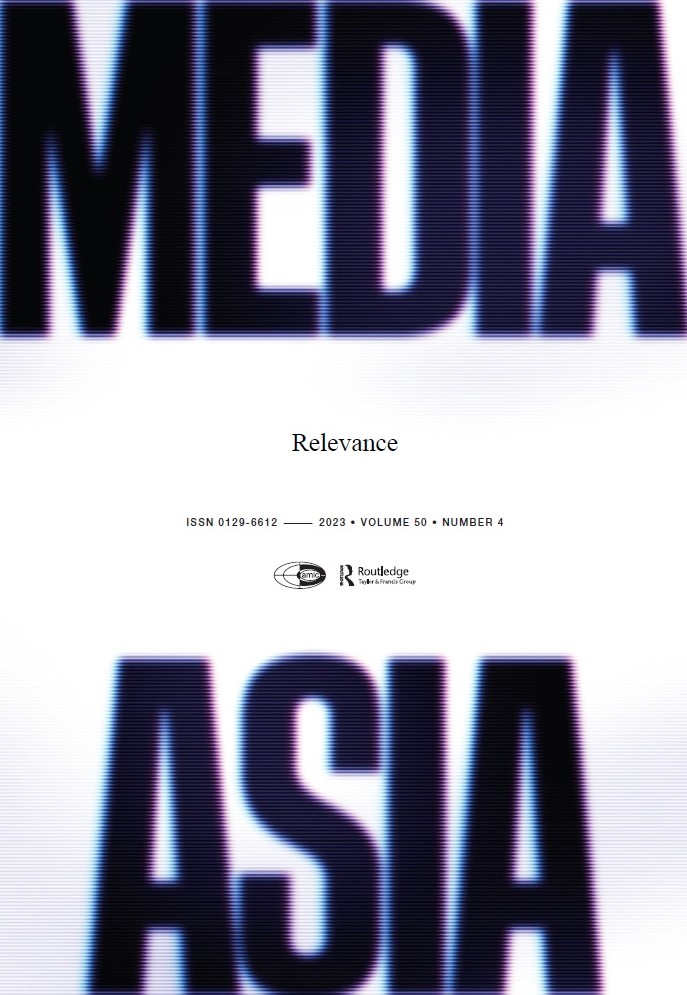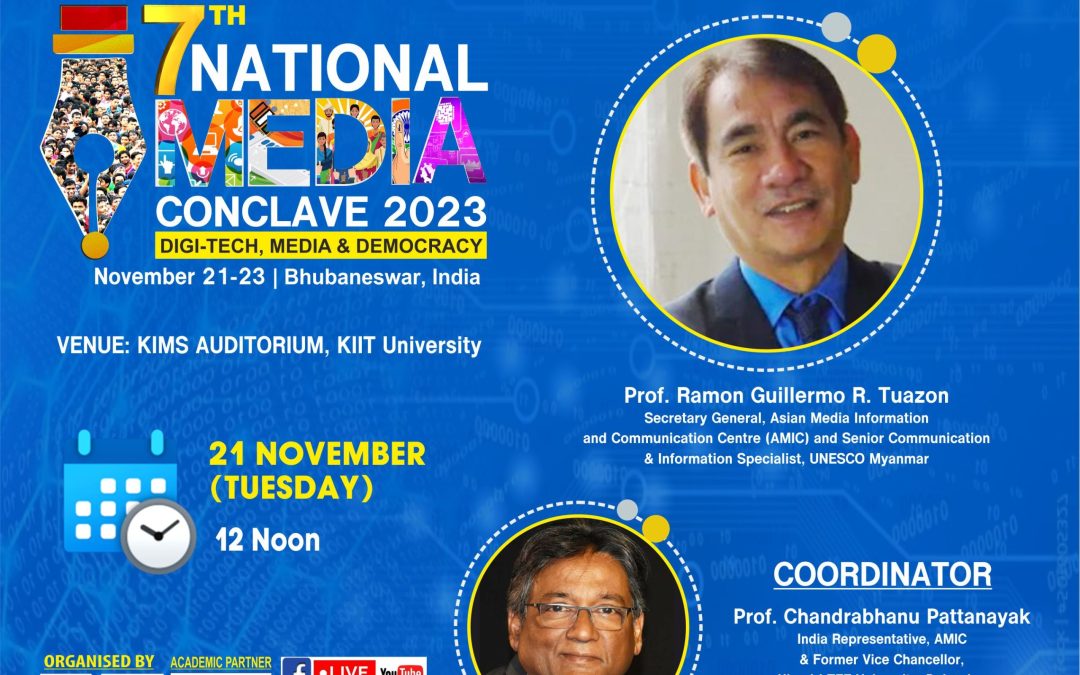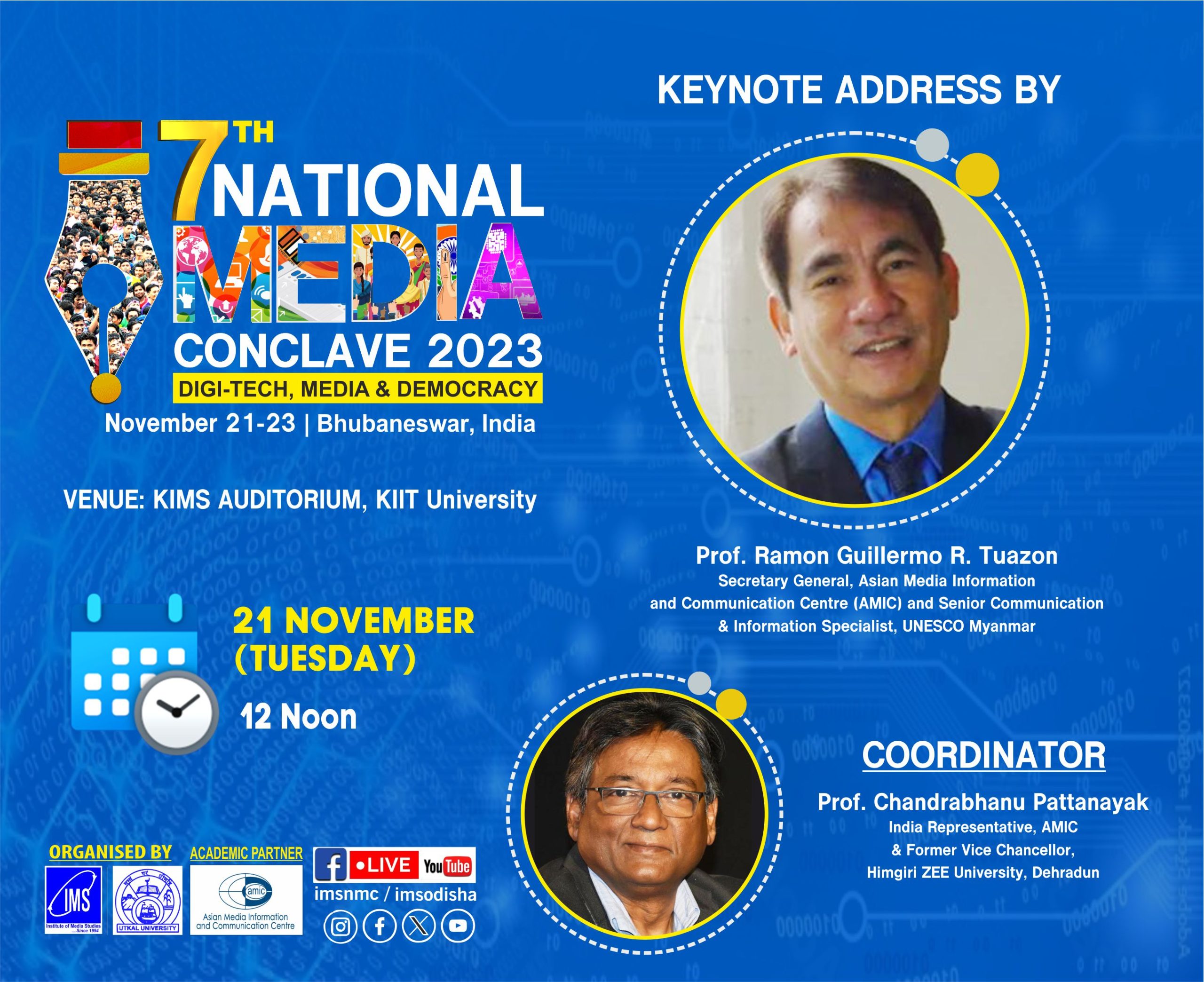AMIC’s first in-person general assembly in two years was held on 29 September 2023, Day 02 of the three-day annual conference in Bandung, Indonesia. The 2021 assembly was cancelled due to the COVID-19 pandemic while the 2022 event was done online. The 2023 general assembly was attended by AMIC regular members, country representatives, AMIC board members, and the Secretariat.
AMIC Secretary-General Ramon R. Tuazon facilitated the almost three-hour meeting. AMIC Chairperson of the Board of Directors, Dr. Crispin C. Maslog, welcomed the members. He thanked them for their presence and encouraged them to sustain their interest and support for AMIC in the coming years.
One of the highlights of the meeting was a short program to honor the memory of AMIC BoD member Dr. Binod Agrawal who passed away on 28 March 2023. Several members and officials recalled Dr. Agrawal’s steadfast commitment to AMIC especially his contributions to communication education and research. He was the 2009 AMIC Asia Communication Awardee.
During the meeting, Secretary-General Tuazon updated the members on completed and continuing programs and projects for 2022 to 2023, particularly in the areas of book and journal publications, forums and webinars, research, the annual AMIC Asia Awards, advocacies, and networking. SG Tuazon recalled that over the past two years, AMIC was able to publish Communication Theory: The Asian Perspective (2nd edition), AMIC @ 50: Turning Gold: A History of the Asian Media Information and Communication Centre, and the 28th AMIC Annual Conference Book of Abstracts with the conference theme, Science Communication: Managing the Now and the Future. AMIC’s journals, Asian Journal of Communication (AJC) and Media Asia were regularly published by Routledge Taylor & Francis and have remained among the world’s top indexed academic and professional journals, respectively.
Added to the roster of AMIC Asia Communication laureates was 2022 awardee Dr. Ronny Adhikarya (see related story on conferment of the award).
During the two-year period, AMIC pioneered the global and regional discussions on the impact of artificial intelligence with two forums on the topic held on 28 October and 24 November 2022. It also sustained its commitment to pursue the development of Asian communication theories and models with two online forums on the issue held on 26 January and 07 July 2023.
For 2024, new programs will complement AMIC’s regular programs. The AMIC Asia Communication Award for Young Leaders will complement the 17-year-old AMIC Asia Communication Award. It aims to recognize exemplary Asian communicators below 40 years old. On the other hand, the AMIC Centers of Excellence will recognize communication campaigns and tools that significantly contribute to the attainment of social good in the Asia Pacific region in areas such as agriculture, health and wellness, basic education, gender, and peace, among others.
An AMIC podcast is envisioned to provide a platform for dialogue between veteran and young Asian communicators. Discussions also aim to amplify youth voices on current and emerging communication and media issues.
AMIC’s almost 100 publications produced over the past 50 years will be uploaded to AMIC’s online library which will be accessible to AMIC members.
The 169 abstracts presented by 237 parallel session presenters will be published in the 29th AMIC Annual Conference Book of Abstracts to be issued by end-2023 and published online.
To be Truly Asian, AMIC will be reaching out to all parts of Asia. According to SG Tuazon, since its creation in 1971, AMIC’s footprint has somehow focused on South and East Asia. It is time to reach out to communication professionals from other Asian regions including Oceania and the Pacific, Eastern Asia, Western Asia (mostly countries in the Middle East), Central Asia, and Northern Asia. AMIC members will be invited to nominate AMIC representatives from countries and territories located in these regions.
An animated discussion ensued among the members on the planned publication of Communication Research Methods and Tools: The Asian Perspective which will complement the Communication Theory book. AMIC country representative to India Dr. Chandra Pattanayak, who was earlier assigned to edit the proposed book, presented his initial concept. He admitted that conceptualizing such a publication is very challenging because of debates among Asian scholars and researchers on the feasibility of Asian-centric research methods and tools including those framed from Asian theories and models.
